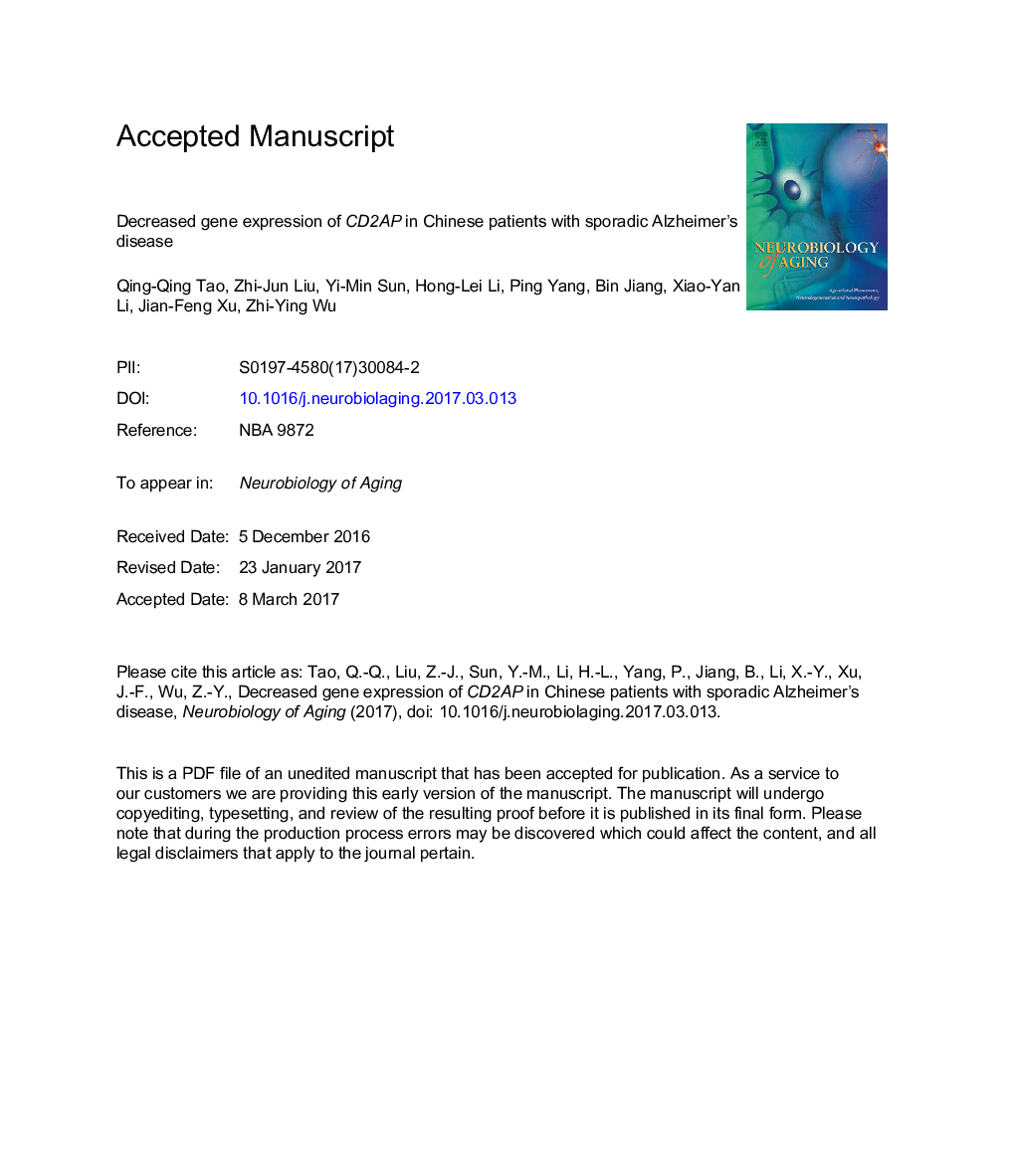| Article ID | Journal | Published Year | Pages | File Type |
|---|---|---|---|---|
| 4932731 | Neurobiology of Aging | 2017 | 28 Pages |
Abstract
Many sporadic Alzheimer's disease (SAD) risk genes have been identified in the last decades, but most of them have not been consistently accepted. Here, we sought to identify SAD-associated genes and their potential mechanisms involved in SAD pathogenesis. A 2-stage design was employed. In stage 1, 95 variants in 75 genes that were previously reported as SAD-risk genes in Caucasian populations were evaluated in 1857 subjects (422 SAD patients and 1435 controls). In stage 2, a subset of promising variants found in stage 1 were further evaluated in an independent cohort of 1001 subjects (254 SAD and 747 controls). Variants in CD2AP were significantly associated with SAD risk in our subjects. Furthermore, CD2AP gene expression in peripheral blood lymphocytes (PBL) from 209 SAD patients and 213 controls was determined. CD2AP gene expression in PBL was significantly decreased in patients with SAD as compared with controls. Our study suggests that CD2AP is an SAD-risk gene in Chinese Han population and CD2AP gene expression is decreased in the PBL of patients with SAD, indicating its possible systemic involvement in SAD.
Related Topics
Life Sciences
Biochemistry, Genetics and Molecular Biology
Ageing
Authors
Qing-Qing Tao, Zhi-Jun Liu, Yi-Min Sun, Hong-Lei Li, Ping Yang, De-Shan Liu, Bin Jiang, Xiao-Yan Li, Jian-Feng Xu, Zhi-Ying Wu,
